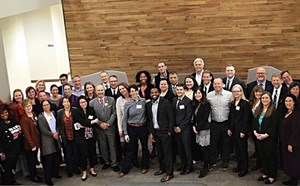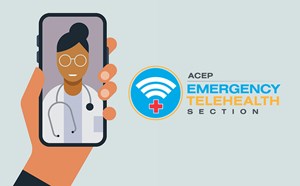
You’ve Got a Friend: Eva’s Village Opioid Overdose Recovery Program and Peer Recovery Specialists
The opioid epidemic continues to claim lives. While physicians have drastically changed their prescribing efforts, and prescribing laws have changed to reduce prescription opioid exposure, illicit opioids and overdose-related deaths remain a problem. The US Centers for Disease Control and Prevention found that the number of overdose deaths involving synthetic opioids nearly doubled between the last half of 2016 and the first half of 2017. Despite these crippling statistics, individuals who survive an overdose may find a way out with the help of an overdose recovery program that is partnered with a hospital.
Paterson, New Jersey is a city that has and is currently battling this opioid epidemic. At the heart of this city and at the forefront of this war is Eva’s Village. Thirty-five years ago, Eva’s Village began its story in the basement of the Sisters of Charity Covenant as a small soup kitchen for the homeless. It has now grown to be a non-denominational, anti-poverty, and non-profit organization that supports a city of over 150,000 inhabitants.
In April of 2016, Eva’s Village launched the Opioid Overdose Recovery Program (OORP), a service that provides a 24/7 hotline for St. Joseph’s Health physicians to contact a “Peer Recovery Specialist” for real-time in-person counseling of patients. Today, the OORP program is available in almost every county in New Jersey; however, only two locations have a government-funded recovery center. Eva’s Village is one of these facilities, placing them in a unique position to successfully rehabilitate those seeking addiction treatment.
All peer recovery specialists of OORP have personally faced addiction and are actively in recovery from either an alcohol or drug addiction; most are recovering from heroin use. Peer recovery specialists share their story of addiction and their journey to recovery, allowing patients to relate to them. “We see people at their worst, but we have the opportunity to help them blossom into something better,” says Mr. Josh Copeland, an OORP peer recovery specialist.
According to Mr. Copeland, the first peer recovery program was piloted in a hospital in Rhode Island. They discovered patients were more likely to follow up with a recovery program when initially approached by someone who was in recovery, as opposed to medical staff personnel with no personal history of addiction. To receive federal funding and replicate this program in New Jersey, Eva’s Village applied for a grant under the condition that all peer recovery specialists become certified by attending classes that educate about different addiction treatment plans.
Every recovery specialist’s story of their journey to recovery is unique. Mr. Copeland was 22 years old when one day he put a t-shirt on and felt numbness over his stomach. He didn’t think much of it until three weeks later, when the numbness progressed from his chest down to his feet. After visiting the emergency department and receiving a battery of tests and imaging, he was diagnosed with multiple sclerosis. Mr. Copeland did not have many family members, and two years later, his grandmother who had raised him, passed away from cancer. He recalls entering a downward spiral. “I didn’t deal with her death properly,” he said. Mr. Copeland had always used drugs as a coping mechanism and felt primed for addiction. It began with prescription pain medication for his condition and eventually led to heroin. “My life fell apart,” he said, as he recounted entering an era of heroin use and homelessness. He once spent time in jail for unpaid fines for panhandling. “I was fined eighty dollars for asking for money,” he says, remembering the irony.
He remembers occasionally visiting the emergency department at St. Joseph’s University Medical Center during winter nights for fear of freezing to death. During one of his visits, Mr. Copeland was reversed with naloxone from overdosing and then discharged. He remembers feeling “sick and out of it. There wasn’t much that was offered to me in the emergency room after that. OORP was not available at that time. If only someone could have talked to me then, it could have been my first interaction with someone who knew a way out.” He recalls being homeless during that time without any family support, only having one pair of clothes, a backpack and a photocopy of an ID. Getting on the road to recovery seemed impossible. “At some point when the drugs run out and the money runs out, you realize, something needs to change.” Mr. Copeland began his journey by attending support groups and meetings for people facing addiction at Eva’s Village. It was then he was first introduced to the OORP program, immediately recognizing it as an opportunity to give back. “I used heroin and committed crimes in Paterson – I felt like a blemish on this community. What helped me was giving back to the community that I stole from.”
Mr. Copeland was simultaneously rebuilding his life while helping others dealing with addiction rebuild theirs. He applied for housing and waited another ten months living in shelters until he was approved. Ironically, his apartment window faced the bridge that he once lived under. While some may find that image as a painful reminder, Mr. Copeland found it empowering.
Within the last five years, Mr. Copeland has received scholarships and has graduated with an associate degree. He will start at William Paterson University in the fall of 2018. “I went from having three jobs in one year to having one job for three years,” commented Mr. Copeland on his newfound stability. Today, Mr. Copeland frequently visits the emergency department at St. Joseph’s University Medical Center, the same place where he almost lost his life, to help patients save theirs.
Not every patient a peer recovery specialist approaches leads to a successful outcome. They do not always agree to enter treatment. However, Mr. Copeland gives them his personal number, telling them to call him at any time. When they are ready, they have someone they can call.
Adelaide Viguri, DO
Associate Medical Director of EM Pain Management
St. Joseph’s Health System



